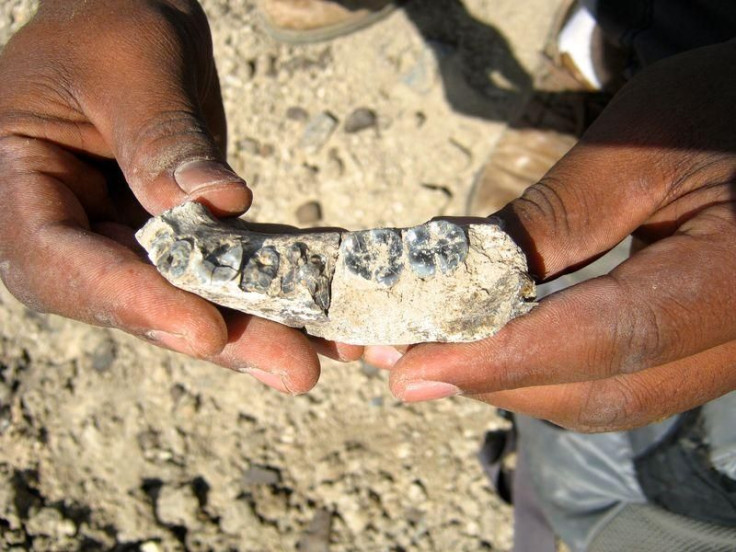Jawbone Fossil Missing Link Between First Humans And 'Lucy,' Researchers Say

A jawbone fragment unearthed in Ethiopia has shifted the dawn of man by 400,000 years. Researchers claim the 2.8 million-year-old fossil belonged to one of the very first humans and could be the missing link to our ape-like ancestor “Lucy," BBC News reported Wednesday.
The potentially groundbreaking discovery was described in a paper published Wednesday by the journal Science. But the jaw fragment was actually found in 2013 at a site not far from where an iconic fossil of a 3.2 million-year-old human-like primate nicknamed Lucy was uncovered in 1974. Scientists are now debating whether Lucy, or Australopithecus afarensis, evolved into the very first primitive humans. “That’s what we are arguing,” Brian Villmoare, an author of the paper and a professor at the University of Nevada in Las Vegas, told BBC News.
Researchers are reportedly continuing field work at the Ethiopia site to look for more fossils. “This fills a gap, but it hasn’t yet given us a complete skeleton. It’s not Lucy,” anthropology professor Eric Delson of Lehman College in New York told the Associated Press. “This is always the problem. We always want more.”
Arizona State University graduate student Chalachew Seyoum told BBC News he was “stunned” when he saw the fossil in the Ledi-Geraru research area in Afar Regional State of Ethiopia. The find shrinks the evolutionary step from Lucy’s jaw to the jaw of Homo habilis -- one of the earliest species of our kind, the Homo genus. Homo sapiens are the only surviving members of this group.
The specimen is of the left side of the lower jaw with five teeth and combines traits of Astralopithecus -- Lucy’s kind -- and Homo. The sloping chin resembles ape-like Australopithecus, while the smaller, symmetrical molars and jaw proportions distinguish it clearly as Homo genus. This reinforces the argument that Homo evolved from Lucy’s species rather than a related one, anthropology professor Susan Anton of New York University told the AP.
A separate study published in Science suggested climate change played a part in human evolution, according to BBC News. Climatic changes turned lush forest into dry grassland, forcing our primitive ancestors to climb down from the trees and live on the ground. As a result, the human-like primates developed larger brains and became less dependent on having big jaws and teeth by using tools.
© Copyright IBTimes 2025. All rights reserved.





















